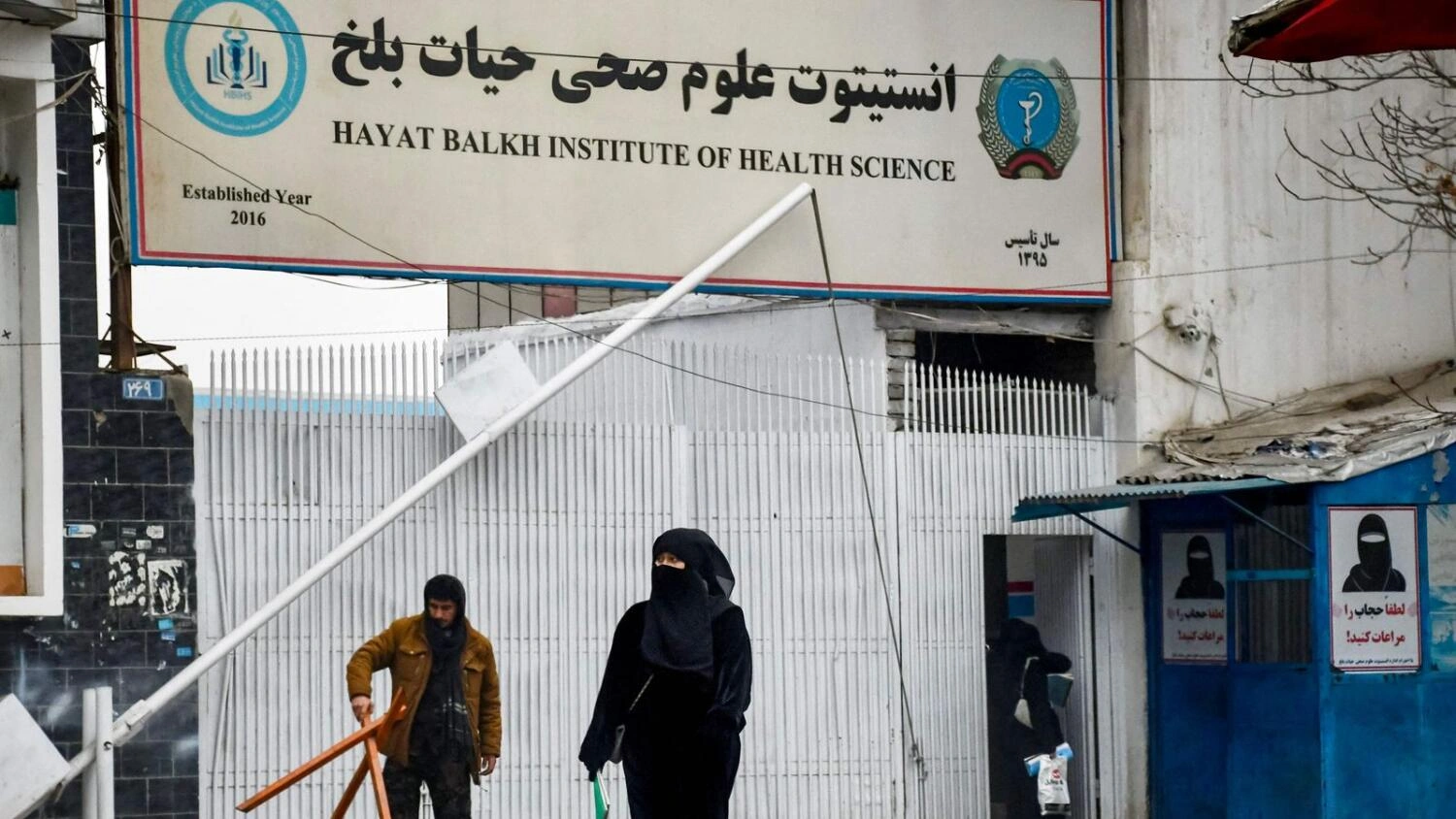For Saja, studying nursing at a healthcare institute in Kabul was her final chance to build a future after Afghan women were banned from universities two years ago.
Now, this dream has been shattered. According to multiple sources, the Taliban government has ordered the exclusion of Afghan women from medical training programs, leaving students and institutions in panic.
When Saja heard the news, it brought back painful memories of past restrictions.
“It felt like reliving the same nightmare,” said Saja, who had been attending university before women were barred. “This was my last hope to achieve something, to become someone,” she said, using a pseudonym. “Everything has been taken from us just because we’re girls.”
The Taliban authorities have made no official statement or confirmation about the decision, nor have they responded to global criticism and calls to reverse it. Since regaining power in 2021, the Taliban has imposed strict rules on women, making Afghanistan the only country in the world to ban girls from secondary and higher education.
Health training centers, which many women turned to after the university ban, are now being forced to exclude female students. Multiple directors and staff at these centers told AFP that the Taliban supreme leader issued the order verbally through the health ministry. Institutions were given just days to a week to conduct final exams before expelling women.
Amid the chaos, institutions are responding differently. Some are holding exams early, some have shut down, and others are waiting for written instructions. Many remain silent, fearing repercussions for speaking to the media.
“Everyone is confused. No one knows what’s really happening,” said Saja, a first-year student at a private institute. She described the rush to complete exams, even though they had finished earlier in the year. Students also had to pay fees to sit for these tests.
A Kabul institute director overseeing 1,100 students, including 700 women, said they received countless messages from concerned students and teachers asking, “Is there any hope?” He added, “No one is happy.”
According to a source in the health ministry, there are around 35,000 women studying in over 150 private and 10 public institutes across the country. These institutes offer two-year diplomas in fields like nursing, midwifery, and laboratory work.
The Norwegian Afghanistan Committee (NAC), an NGO managing 588 women in collaboration with the health ministry, confirmed they were told verbally that classes for women were “temporarily suspended.” NAC’s country director, Terje Magnusson Watterdal, emphasized the seriousness of the verbal order and noted that some within the Taliban oppose the decision.
He expressed hope that public institutes would at least reopen for women, adding that many midwifery students are deeply motivated by personal experiences, such as losing loved ones during childbirth. “For these women, it’s more than a job—it’s a calling,” he said.
The United Nations and other global organizations have warned of the devastating effects of such policies, particularly in a country with high maternal and infant mortality rates.
In response to the ban, small protests have occurred in parts of the country, with images circulating on social media.
Assal, another student using a pseudonym, received an expedited diploma last week. However, she remains uncertain about her future in a country with rising unemployment and diminishing opportunities for women.
“I wanted to practice medicine and continue my studies,” said the 20-year-old. “They’ve taken everything from us. What’s next? Will they stop us from breathing?”





